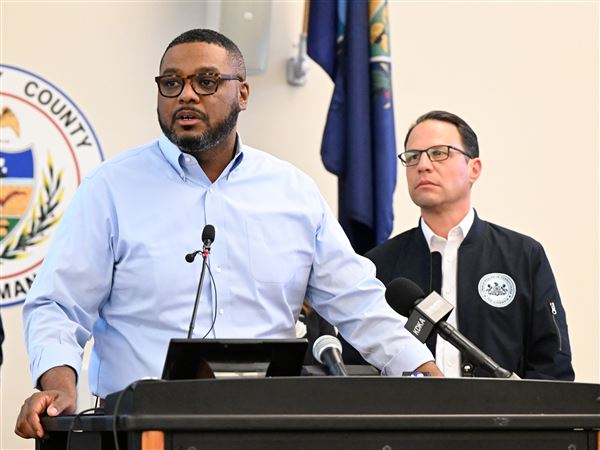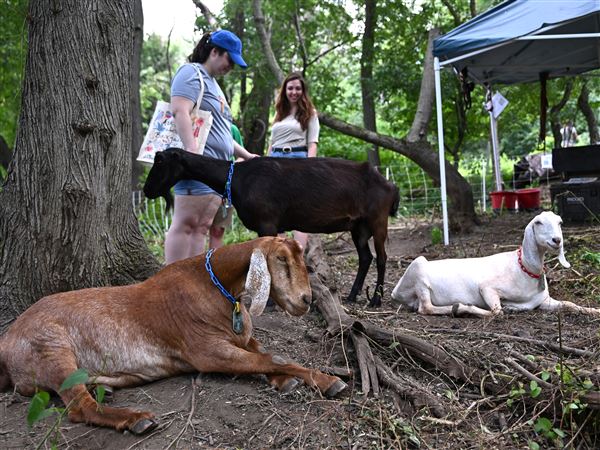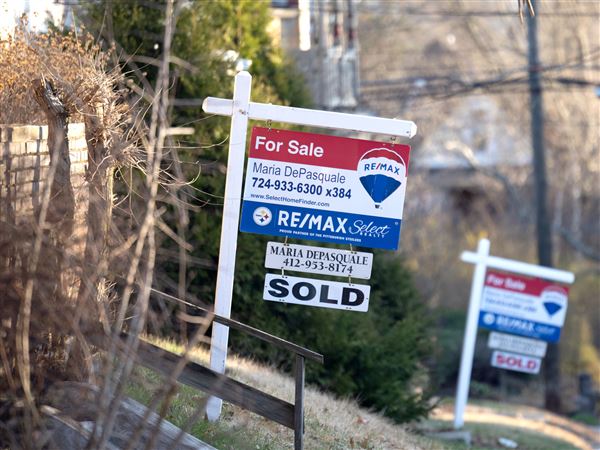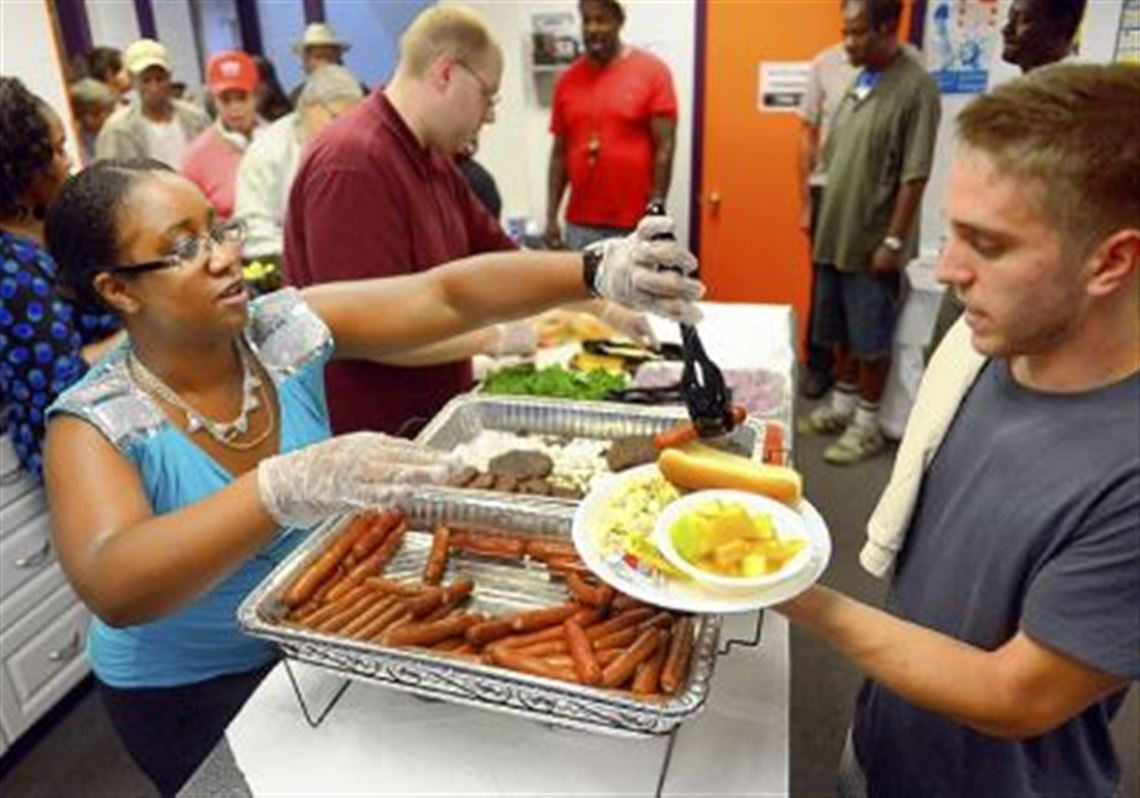A small clutch of residents and students had gathered early on Lawn Street in South Oakland when resident Dave Panasiuk and Kannu Sahni, the director of community relations at the University of Pittsburgh, began knocking on doors.
With free food waiting to be served Wednesday night, they roused a few students out to follow them to Community Human Services for the first of three good-neighbor parties Pitt is throwing this fall. Getting students to talk, mix and share food with nonstudent residents is one strategy toward easing tension that plays out every school year when student behavior, at its worst, is marked by drunkenness, late-night noise and property damage.
Pitt piloted the program last year, "and we had an amazing response from residents," Mr. Sahni said. "They reported that it did pay off" in better student behavior. "One of the challenges is to reach out to students."
Over pizza, hamburgers and hot dogs at round tables, there were lots of smiles and laughter.
The evening included the showing of a documentary made by Pitt students Samantha Levinson and Zeba Ahmed, with interviews of a wide range of 22 residents and students, all of them stating, "I am South Oakland."
"We decided to do this documentary to let people who live here" define the neighborhood, Ms. Levinson said. "The neighborhood lacked a distinct identity."
South Oakland is south of the Boulevard of the Allies, bordered by the Monongahela River and Schenley Park. It is referred to by some as a "student ghetto."
Pitt's University Center for Social and Urban Research, however, reports that 36.9 percent of its population is age 18-24 while that of Central Oakland is 74.1 percent.
An idiosyncrasy of the enclave that residents refer to as Oakcliffe is its population of Point Park University students, roughly half-and-half with Pitt students.
Mr. Sahni said Pitt does not distinguish in its outreach "because we recognize there are common issues and that we need to present a united front."
"If it helps us by 10 percent, that will be at least something," Mr. Panasiuk, chairman of the Oakcliffe Housing Club, said about the block parties. "I applaud the university for this outreach."
The next parties are Thursday at a resident's home at 234 N. Dithridge St. and Sept. 26 in Oakland Square at Dawson Street. Both are from 5:30 to 7:30 p.m.
"We chose areas where issues come up most each year," Mr. Sahni said.
Pitt representatives attend the regular meetings of various neighborhood groups in Oakland, Mr. Sahni said. Mr. Panasiuk said Point Park representatives also attend and that Point Park police patrol the neighborhood.
"Many things have to happen" to improve the town-gown relationship, Mr. Sahni said.
"We have a student guide with instructions and expectations about behavior. Relationship building is one of the pieces, and that's what these block parties are for. We have the enforcement piece, where Pitt and the city police work together. But it takes a concerted effort."
Diane Schatz recently moved to Oakcliffe with help from Community Human Services and said she likes being around students "because they are very accepting" of people of diverse backgrounds.
"I have no complaints. There's a house near me where they party on weekends, but I get that. They're college students. By 1 a.m. it usually quiets down."
Leslie Gersch has lived in Oakcliffe since 1979 and worked for Community Human Services for years. "I moved here because they are here. They do a lot for the neighborhood."
She, too, has no gripes with students.
"I'm kind of like the Kool-Aid mom," she said. "I'm nice to them. When I ask them to quiet down, they do, but I think it's because I don't call the police on them. I'd rather ask them" than call 911.
Four Point Park sophomores share a house on Kennett Square and walked to the party together.
"We thought it would be fun," Alissa Blad said.
"It was good to meet people you live around," Shannon Turner said.
"We're college students," Brooke Bero said. "We're always interested in free food.
"Three of us shared a house last year on Juliet Street" and have had no problems with complaining neighbors, she said, adding, "I don't think we're the problem students."
First Published: September 13, 2013, 8:00 a.m.


















